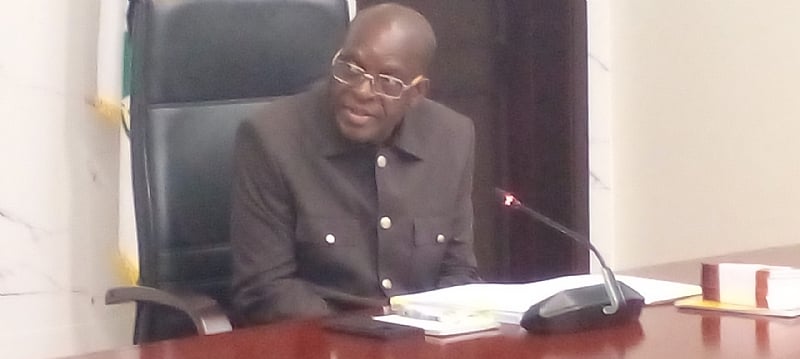Ghana’s Parliament, under the leadership of Speaker Alban Bagbin, has demonstrated a robust commitment to combating corruption and promoting financial accountability within the public sector. Through the diligent work of the Public Accounts Committee (PAC), significant strides have been made in recovering misappropriated funds and strengthening transparency within government agencies. By the close of 2024, the PAC’s meticulous scrutiny of public sector institutions resulted in the recovery of over GHc273 million, a testament to Parliament’s active role in safeguarding public resources. Furthermore, the committee formulated 252 recommendations aimed at enhancing accountability and transparency within state agencies, signifying a proactive approach to preventing future instances of financial mismanagement.
The Speaker’s announcement of these achievements coincided with a visit by a high-level delegation from the African Union Advisory Board against Corruption. The Board’s visit, part of a week-long assessment of Ghana’s implementation of the African Union Convention on Preventing and Combating Corruption, underscores the nation’s dedication to upholding continental anti-corruption standards. The Board’s engagement with key anti-graft institutions like the Commission on Human Rights and Administrative Justice (CHRAJ), along with civil society organizations, highlights a collaborative approach to tackling corruption. This collaborative effort seeks to leverage shared expertise and experiences to identify challenges and formulate effective strategies for strengthening anti-corruption mechanisms.
Ghana’s long-standing commitment to eradicating corruption is evident in its proactive legislative and institutional measures. The adoption of a “Zero Tolerance against Corruption” policy in 2001, coupled with the enactment of key legislation such as the Anti-Money Laundering Act, Whistle Blowers Act, Witness Protection Act, and the Rights to Information Act, demonstrates a concerted effort to create a robust legal framework against corruption. These legal instruments provide the necessary tools for investigating and prosecuting corrupt practices, protecting those who expose wrongdoing, and ensuring public access to information, thereby fostering transparency and accountability.
Beyond legislative measures, Ghana has established key institutions dedicated to combating corruption. The establishment of entities like the Serious Fraud Office (later upgraded to the Economic and Organised Crime Office – EOCO) and the Office of the Special Prosecutor demonstrate a commitment to providing specialized bodies focused on investigating and prosecuting complex financial crimes. These institutions play a crucial role in enforcing anti-corruption laws and holding perpetrators accountable, reinforcing the message that corruption will not be tolerated. These measures, combined with the strengthening of existing governance structures within Parliament, highlight a multi-pronged approach to tackling corruption.
Within Parliament itself, significant steps have been taken to enhance internal governance and accountability. The implementation of a Code of Conduct for members and staff, revisions to the Standing Orders, and the creation of an anti-corruption department within the parliamentary structure all contribute to promoting ethical conduct and preventing conflicts of interest. Moreover, the establishment of the Privileges Committee, Ethics and Standards Office, and the Office of Profits serves to further strengthen oversight and ensure that members adhere to the highest ethical standards. These internal mechanisms are essential for maintaining public trust in the legislative body and ensuring that Parliament serves as a model of integrity.
The Speaker’s emphasis on Parliament’s role in exposing corruption underscores the institution’s crucial function in holding the government accountable. The establishment of the Citizens Bureau, which provides a platform for citizens and civil society organizations to petition Parliament on issues of national interest, further strengthens this role. By facilitating citizen engagement and enabling the investigation of potential wrongdoing, Parliament fosters a culture of transparency and responsiveness. This emphasis on citizen participation and accountability is further reinforced by Ghana’s active involvement in continental parliamentary networks, including the Association of Speakers in Africa and the African Network of Parliamentarians, which promote good governance and inter-parliamentary cooperation. Through these initiatives, Ghana’s Parliament actively contributes to the fight against corruption both nationally and across the African continent.


